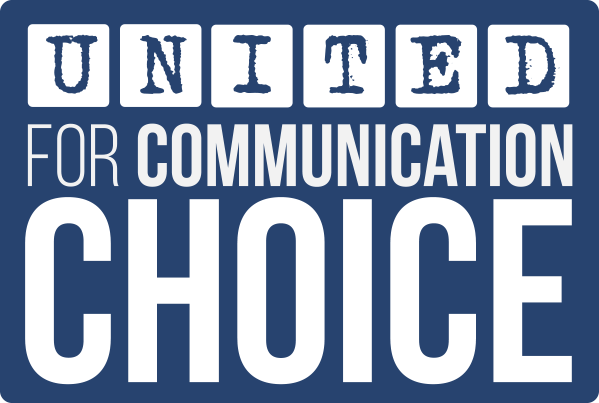September 6, 2018
Board of Directors
American Speech-Language-Hearing Association (ASHA)
2200 Research Boulevard
Rockville, MD 20850-3289
Re: Ethical Violations in Study Relied Upon by ASHA Committee
To the ASHA Board of Directors,
United for Communication Choice, a grassroots effort of individuals with disabilities, their families, and allies, writes to reiterate its requests that ASHA withdraw untenable statements on the Rapid Prompting Method (RPM) and Facilitated Communication (FC) put forth by an Ad Hoc Committee. The Committee’s contemptuous tone and attempt to dictate whether and how people with disabilities should communicate appear to conflict with ASHA’s tagline: “Making effective communication, a human right, accessible and achievable for all.”
Compounding the serious ethical, scientific, legal, and practical concerns raised previously by disability groups and individuals are new questions surrounding the Committee’s actions in relation to a discredited study.
We have learned that an “in press” manuscript by Jason Travers, Kevin Ayres, Cary Trump, and Rachel Cagliani, cited repeatedly in the August 8 statement on RPM, was retracted by the Journal of Autism and Developmental Disorders after the University of Georgia Institutional Review Board found the researchers had committed serious ethical violations.
ASHA has a stated commitment to “ethically appropriate research and scholarship.” However, the Committee’s handling of this retracted study calls that commitment into question:
1. We have reason to believe that Committee members were aware the study was under investigation at least four days before the RPM statement was finalized and released on August 8.
2. Despite ASHA being officially notified of the ethical violations no later than August 23, references to the discredited study were not removed until late on August 31.
3. The revised statement acknowledges in a footer that the statement has been amended to remove the references, but it does not explain that this is because the authors committed serious ethical violations. To the contrary, the footer (“article … was subsequently withdrawn by the authors”) gives the false impression the authors did so of their own volition.
4. The Committee downplayed the extent of its reliance on the discredited study by describing the removal of “one previously cited article and mention of it.” The footer suggests there was just one such “mention,” when in fact the August 8 statement cited the study at least four times, as much or more than any other study cited.
5. The revised statement continues to promote the retracted study in its “Recommendations” section, alluding to it as “emerging scientific evidence” without actually citing it.
6. The Committee had the opportunity to acknowledge that serious ethical violations led to the retraction of the study and to explicitly condemn this unethical behavior. It did not do so.
7. ASHA notably disclaims responsibility for any consequences resulting from complying with its policy statements, and even explicitly disavows their “accuracy.” But refusing to take responsibility to notify consumers of a confirmed inaccuracy and ethical violation raises questions about the Committee’s own adherence to ethical standards.
a. The statement referencing the discredited study was widely promoted with a press release, a social media blitz, and an interesting public relations video featuring ASHA’s CEO. The original version of the statement remained on ASHA’s website from August 8 to August 31, and was read, printed, and downloaded by an unknown number of ASHA members and others. Unless one of those readers happens to visit the webpage again and actually re-reads the entire document to the very end, including the References and Disclaimers section, they will never know anything in the statement has been altered. They certainly will never know it was changed because of ethical violations.
In light of these developments, and the Committee’s known associations with the discredited researchers, we encourage you to investigate the Committee’s actions, especially given the rush to finalize the controversial statements several months earlier than scheduled in the face of overwhelming opposition from the disability community.
By its own admission, less than one-half of one percent of ASHA’s membership supported the statements. They are rife with factual inaccuracies and utilize defective and circular logic. The Committee relied upon a limited segment of published research, unpublished work, and baseless assertions. Evidence contradicting the personal agendas of Committee members was discounted and excluded. And many ASHA members find concerning the statements’ implication that they may no longer engage in any “facilitator-dependent” practice that is not backed by scientific evidence, including the teaching or use of virtually all augmentative and alternative communication methods.
We strongly urge the ASHA Board to consider the views of disability groups and individuals with disabilities in matters related to how they choose to communicate. If the Board would be interested in engaging in such a dialogue, we would be more than happy to coordinate this. Please contact Suzanne Lotharius at [email protected].
Sincerely,
United for Communication Choice
https://unitedforcommunicationchoice.org
